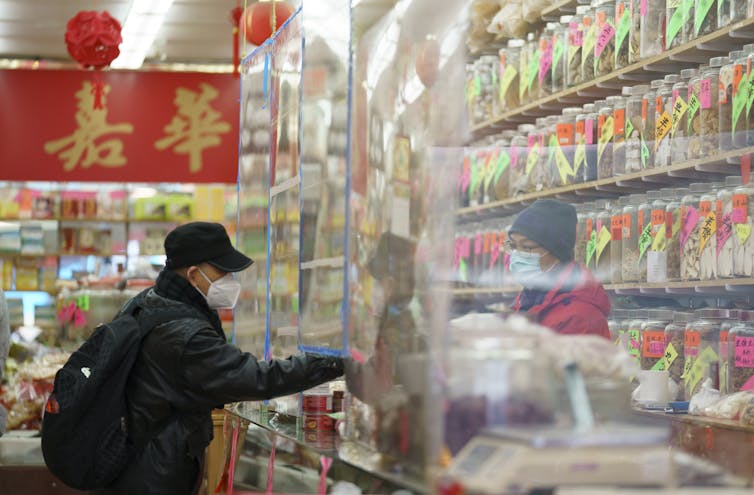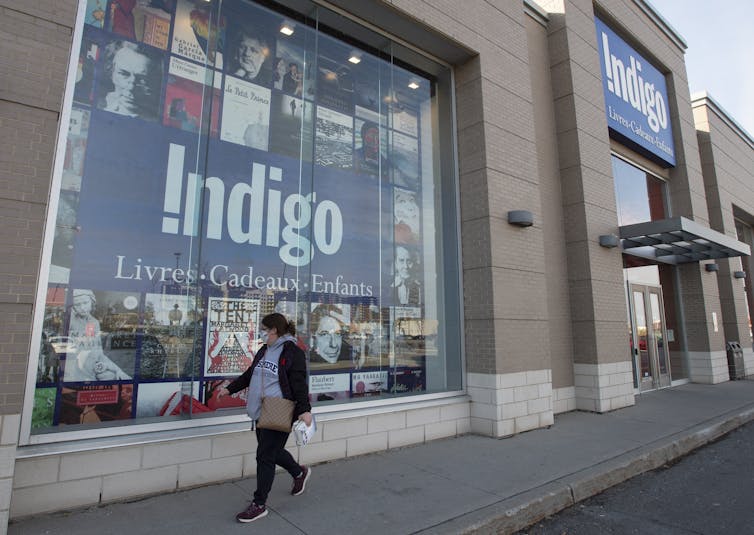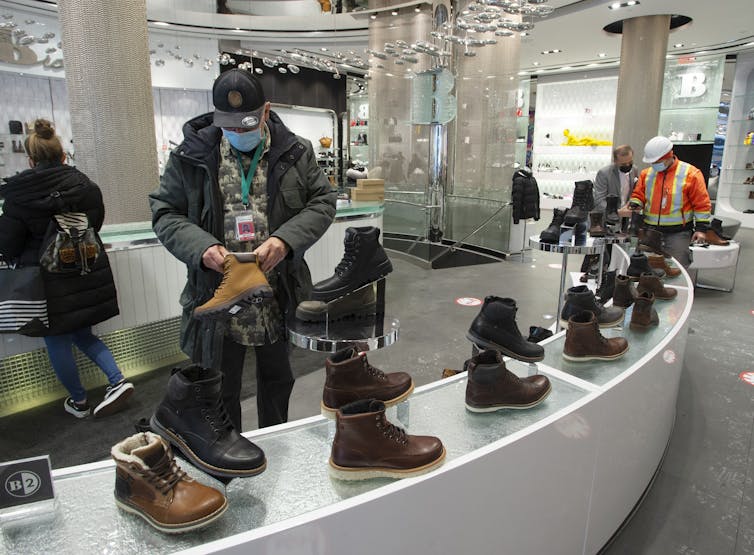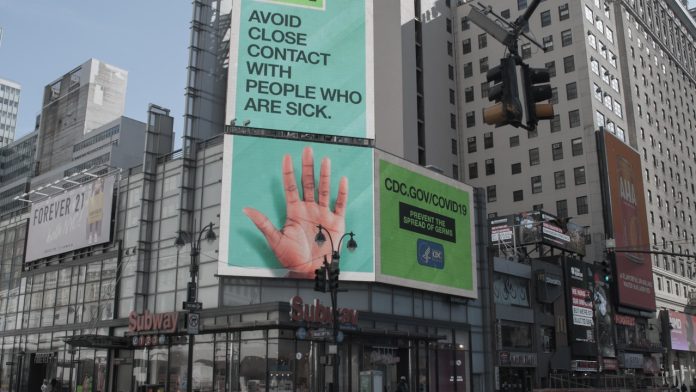Masking is currently required to access retail stores across Canada amid the COVID-19 pandemic. Presently, every province has regulations in place that require customers to wear masks before entering stores to shop.
All such regulations include exemptions for those unable to mask owing to a disability. However, not all store masking policies include these exemptions.
The inability to mask for medical reasons raises important questions about the application of well-established principles of human rights law to the retail sector.
Accommodation a shared responsibility
Many human rights principles were developed around employment, including, for example, the employer’s duty to accommodate workers to the point of undue hardship.
Get news curated by experts, not algorithms.
In the accommodation process, employees have a right to privacy — they don’t need to disclose their diagnoses or provide more information than is necessary to establish their work-related limitations. How much information is sufficient varies with the circumstances. However, it usually involves documentation from a medical professional that substantiates and explains these limitations.
Both parties have a duty to participate in the process; it’s a shared responsibility. There can be several exchanges before an accommodation is agreed upon, often including requests for further medical information. Accommodation is highly discretionary, and parties are encouraged to be creative when exploring various accommodation measures.
Square peg in a round hole
This process, with its back-and-forth nature, is suited to a situation in which the parties have an ongoing relationship. But in a retail setting, there’s no such relationship, so established principles of accommodation are an awkward fit.
Take, for example, a case at the Ontario Human Rights Tribunal. A claimant took the City of Toronto to task, alleging that he was discriminated against at various local businesses owing to the city’s masking bylaw. The bylaw directs organizations to create a policy mandating mask wearing with exemptions for those with an “underlying medical condition,” further stating that no proof of such condition will be required.
Read more: Scientists: Here’s how to fight back against anti-maskers, climate deniers and anti-vaxxers
Ultimately, the tribunal dismissed the complaint, saying the city “cannot be faulted” for others’ misapplication of its bylaw. In doing so, the tribunal acknowledged that accommodation is a “shared responsibility.” In a retail setting, according to the tribunal, that means that a customer must “identify to a business” that they have an exemption-qualifying condition, but don’t have to provide proof.
Merely identifying a condition, however, falls short of the exchange that usually accompanies requests for accommodation in settings where parties have an ongoing relationship. A business and a customer can hardly share responsibility for accommodation in the same way an employee and a supervisor do.
Proof, what proof?
The question about how much information a customer should supply to retailers was also relevant to a recent case in British Columbia. A person was denied entry to a store for refusing to wear a mask, even after identifying a medical condition to the security guard. Since the claimant declined to provide details to the B.C. Human Rights Tribunal about their alleged disability, the claim was dismissed.

The B.C. tribunal, unusually, made public its decision to make clear that claims require evidence of a disability because, as it rightly stated, the Human Rights Code “does not protect people who refuse to wear a mask as a matter of personal preference.”
However, this doesn’t answer the most pertinent question: What information is a customer required to supply to an organization before the fact, rather than to a human rights tribunal after the fact.
The B.C. tribunal is awaiting a more suitable complaint to determine how much medical information customers must give retailers to be exempt. But are exemptions the only answer?
Exemptions ripe for abuse
The need to substantiate mask-exemption claims in the retail sector is genuine, more so as the pandemic worsens. Masking has been politicized, and merely claiming an exemption can be ripe for abuse. Possibly in response to this reality, Costco altered its masking policy in November by removing medically based exemptions. Other retailers followed suit. Removing exemptions has proven controversial, and it’s unclear whether it’s lawful.
Both Costco and Indigo identify alternatives to in-store shopping for those unable to mask. These include shopping online and curbside pickup.

This appears consistent with advice from some human rights commissions. The Ontario Human Rights Commission, for example, in its non-binding policy role, suggests “offering curbside pickup” as a possible accommodation measure since this “would generally allow a person to receive a retail service.” The Saskatchewan Human Rights Commission has offered a similar view.
Alternative accommodation measures short of exemptions aren’t ideal for some. However, another principle of accommodation is that people have a right to an adequate accommodation — but not necessarily their preferred accommodation.
Accommodation or exemption?
Current alternatives to in-store shopping are arguably consistent with human rights accommodation principles. Even prior to the masking regulations, some businesses had already insisted their customers wear masks when they enter their stores, in response to the pandemic.
They could do so, as long as they were abiding by those accommodation principles. And given the potential for abusing masking exemptions, the in-store shopping alternatives may also better coincide with legal duties under health and safety legislation across the country.

But consumers and retailers are understandably confused. Indigo, for example, maintains that despite their store policy, they are “mindful” of their “legal obligations, especially those relating to customer human rights.”
As vaccination efforts roll out across the country, the end of the COVID-19 pandemic may finally be in view. Issues of mask-wearing exemptions and accommodations by retailers may soon be moot and the situation could remain unresolved — until the next public health crisis.














